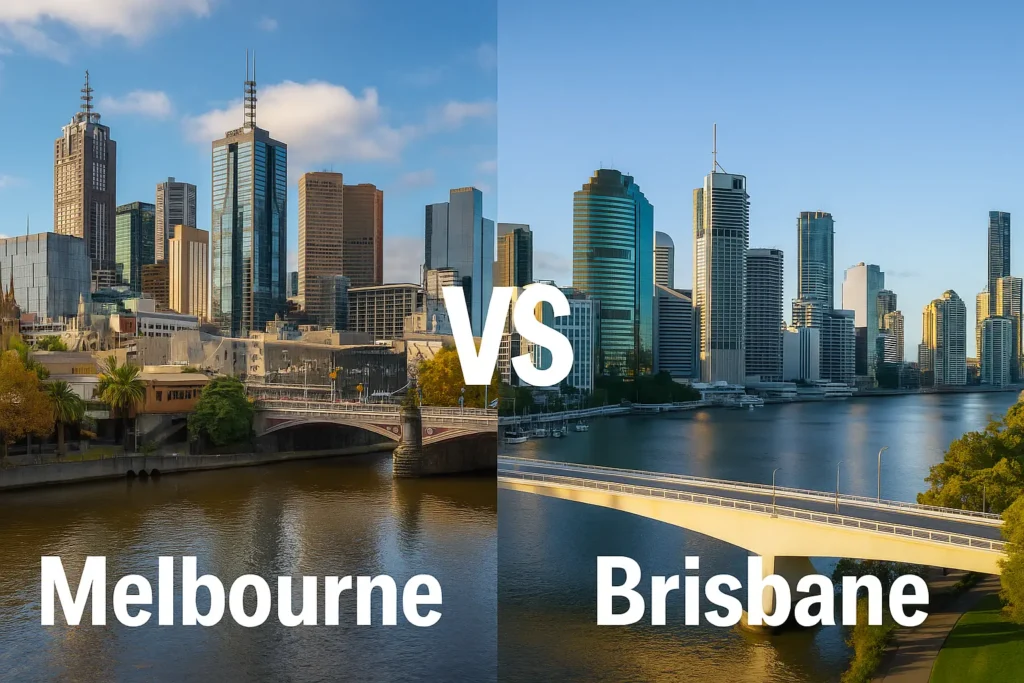Now Reading: Australia vs Japan: which country suits you best?
-
01
Australia vs Japan: which country suits you best?

Australia vs Japan: which country suits you best?
When choosing one of the two amazing countries, Australia vs Japan, the question is not which country is better, but which country suits your personal interests, lifestyle, or travel arrangements. Australia and Japan are both world-class destinations and have amazing abilities to deliver on culture, economy, food, and experiences. Even so, a number of key differences set the two nations apart.
Discover how Australia and Japan compare across various aspects, giving Australians a deeper understanding of their unique qualities. This Australia vs Japan comparison will help highlight those differences clearly.
Lifestyle differences between Australia vs Japan
Work-life balance
- Australians are known for being relaxed and putting a lot of importance on work-life balance. Many Australians would rather work fewer hours, have flexible hours, and have a strong culture of taking time off.
- Japan is often associated with a work culture that values long hours, formal structures, and a deep-rooted commitment to hard work. This is becoming better little by little, but in Japanese society, work usually comes before personal time.
Living space and housing
- Most Australian homes are bigger, have bigger backyards, and have modern conveniences. You’ll frequently see detached properties lining the streets of suburban communities.
- Because there are so many people living in Japan, homes are frequently smaller, especially in places like Tokyo and Osaka. In residences, function is usually more valued than size.
Daily lifestyle and social interaction
- Australia is known for its friendliness, politeness and openness. Aussies are naturally open and often spark conversations with strangers.
- When people talk to each other in Japan, they tend to be more reserved. Being polite, respectful and humble is very important in their daily lives.
Cost of living: Australia vs Japan
- Groceries and daily essentials: Compared to Australia vs Japan is generally more budget-friendly for everyday expenses like food and commuting.
- Housing: City centre Tokyo rent is expensive; that being said, there is much of Japan that costs less than in Sydney or Melbourne.
- Healthcare: Medicare is free to all Australian citizens and permanent residents. Japan, by contrast, has a compulsory health insurance program that ensures its people are treated well at a cost that it can afford.
Cultural differences of Australia compared to Japan
Traditions and heritage
- It is shaped by its Australian past as a former British colony, as it is by the various cultures that populate it. Holidays like ANZAC Day and Australia Day show what it means to be Australian.
- Japan enjoys a rich and fascinating history of cultures that spans over thousands of years. The cultures range from that of samurai cultures, Shinto shrines, sumo wrestling, to season-based festivities such as Hanami, whereby people gaze at cherry blossoms.
Food and dining
- Aussie cuisine is famous for barbeques, seafood, international tastes, and homegrown produces. The cuisine is informal and multicultural, and it contains global tastes.
- Japanese cuisine emphasizes fresh materials, harmony, as well as pleasing presentation. Sushi, ramen, tempura, and bento boxes are daily kinds of food, and there are manners as to how one must consume them.
Education system: Australia vs Japan
- Schools in Australia are informal and focused on what the students require, so there is independence of mind and innovation.
- Japan’s school system is both competitive and highly structured, and heavily oriented around discipline, rote memorization, and testing. The children attend school more hours as well as take ethics courses andclub activities.
Public transport and infrastructure
- People all over the world know that Japan has a great train and subway system that is fast, reliable, and easy to use. The bullet train, or Shinkansen, is the quickest means to get from one city to another.
- Cars are a bigger part of Australian culture, but things are getting better. Cities like Melbourne and Sydney have public transportation, but it’s not as good or as widespread as it is in Japan.
Travel and tourism highlights
Why do Australians love visiting Japan?
- Cherry blossoms in the spring season
- Powder snow in Hokkaido for skiing
- Cultural experiences through temples, shrines, and tea ceremonies
- Anime, fashion, and technology
- Unique food experiences, including sushi trains and izakayas
Why do Japanese tourists love visiting Australia?
- World-famous natural treasures such as Uluru and the vibrant Great Barrier Reef.
- Beautiful beaches and surf culture
- Famous animals such as kangaroos and koalas
- Relaxed Aussie hospitality
- Wine regions and the option for a road trip
Environmental and climate contrasts
- Australia has many climate types. In the north, it is tropical. In the middle, the climate is dry. In the south, it is temperate. Summers can be extreme, with heatwaves and bushfires.
- Japan has four seasons, with heavy snow in the north and humid summers in the south. The country is also prone to environmental risks like earthquakes and tropical storms.
Sports and recreation
- Sport lives and breathes in Australia — the national obsessions being a trifecta — cricket, AFL, rugby league, and surfing.
- Japan’s sporting emphasis lies with martial arts (like judo and karate), baseball, sumo, and football (soccer), while showing interest in international sporting events like the Olympics and the FIFA World Cup.
Job opportunities: Australia vs Japan
Australia
- High demand in health, construction, IT, and skilled trades
- High wages and versatile work opportunities, including work-from-home roles
- Casual and part-time work opportunities are widely available
- English-speaking, with opportunities for skilled migration
Japan
- Relevant sectors are engineering, technology, and education.
- Strong demand exists for English teachers, often in more rural areas.
- Full-time job culture, structured and strong stability.
- Japanese language ability is often needed for the majority of positions.
Key similarities between Australia vs Japan
Though the two countries contrast in many respects, their shared values remain evident:
- Both are stable democracies with advanced economies and modern infrastructure.
- Both countries invest in education, technology and innovation.
- Both countries have stable diplomatic relations, trade relations, and participate in forums, such as the G20.
- Tourism and bilateral cultural exchange, and human interactions are actively occurring between the two countries, including student exchange programs.
Challenges and strengths
Strengths of Australia
- There are vast amounts of natural spaces, including beaches, reefs, and bushlands.
- A multicultural society respects differences and counts everybody in.
- Both professional goals and personal satisfaction are nurtured through this way of life..
Challenges faced by Australia
- It’s hard to trade and travel because it’s so far away.
- Living costs are high, especially in big cities.
Japan’s Strengths
- The best at coming up with new ideas in robotics and technology
- A very safe city with minimal crimes.
- A wonderful public transportation network consisting of bullet trains.
Challenges faced by Japan
- Increase in aging people is placing significant pressures upon work life and upon the health care sector.
- Long working hours and diligence in Japan may make it difficult to maintain a good work-life balance.
Conclusion
- Choose Australia if large wages, plenty of job prospects, and work based around English are key. Great for individuals who are considering professions in medicine, building, and computer science, and it’s also good for individuals who want a good work-life blend.
- Choose Japan if you are looking for well-organized, long-term engineering, education, and robotics jobs, and if a more professional worklife does not deter you.
Both countries have strong economies, modern infrastructure, and employment opportunities. The main distinctions between working in Australia and Japan are the employment requirements, the expectations at work, and the flexibility of the job. In the end, the choice between working in Australia and Japan boils down to whether you like a laid-back lifestyle or a strict professional work atmosphere. This comparison of Australia and Japan shows how different their work cultures and national identities are.














